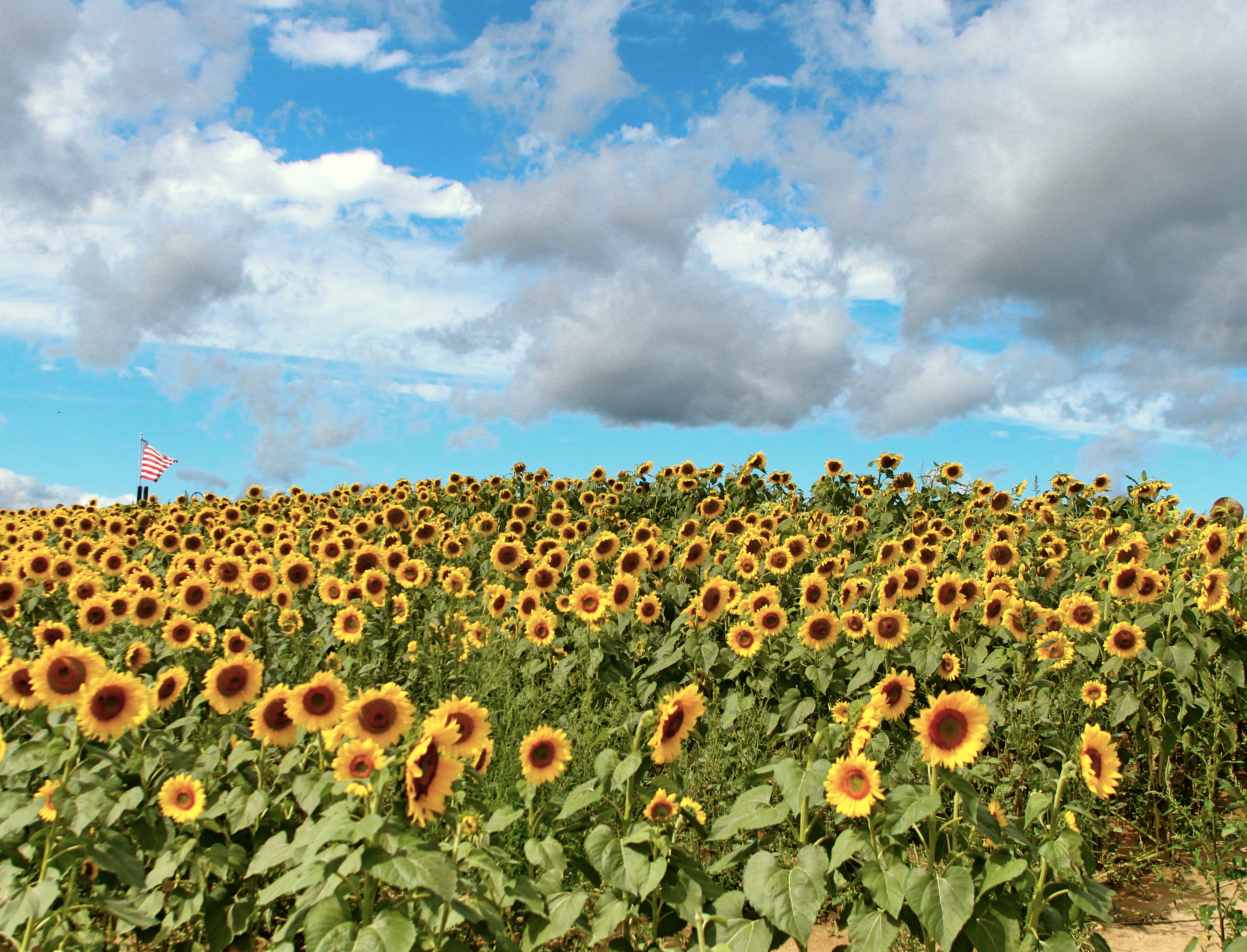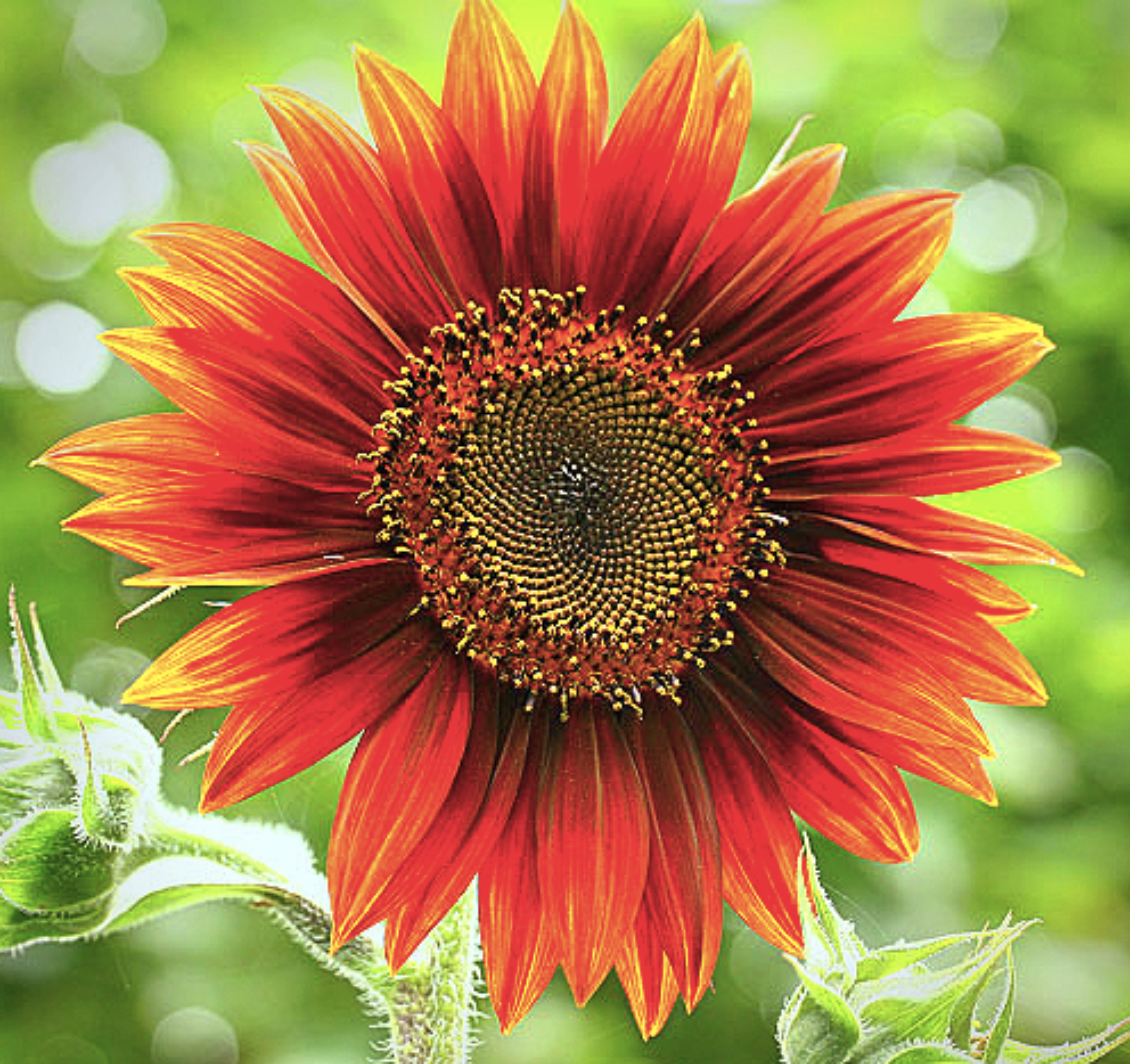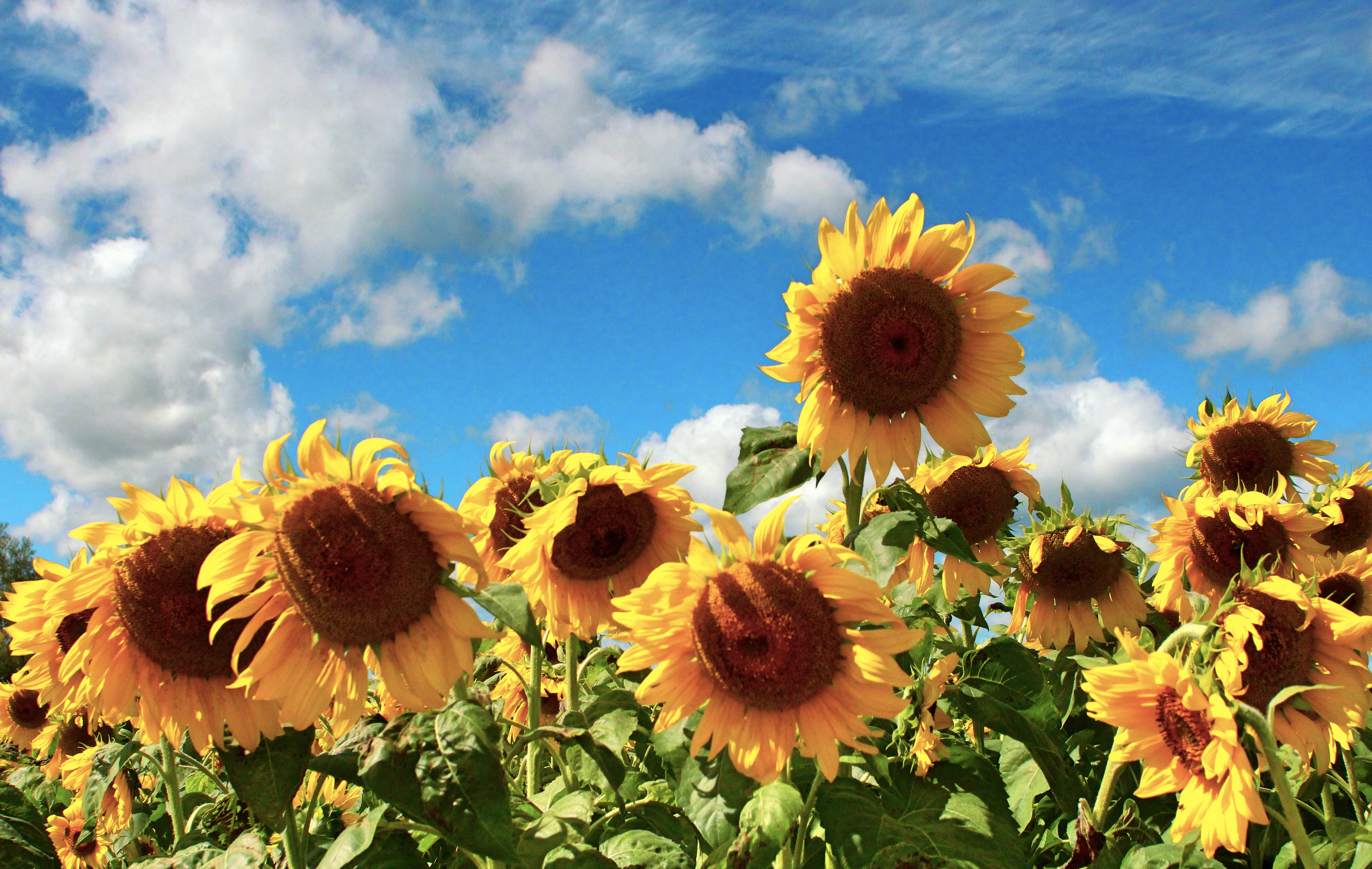
Sunflowers are bright and cheery, and as warm and inviting as the sweet summer sun. With brilliant yellow petals, also known as “rays,” sunflowers have an unmistakable sun-like appearance that has made them a crowd favorite, especially in the summer months.
Sunflowers come in a number of varieties—ranging from small to very large, from having yellow petals to red. However, there is more to sunflowers than meets the eye. While they are stunningly beautiful, they also are rich in history and meaning.

Sunflowers originated in the Americas in 1,000 B.C., and were then cultivated as a valuable food source for centuries. With the European exploration of the New World, the flower’s popularity spread, as the rest of the world began to appreciate its beauty and sustenance.

Artists throughout history loved the sunflower’s unique splendor—those of the Impressionist era were especially fixated on the flower. The use of sunflower images as religious symbols has also been documented in some native societies.

Wild sunflowers are often photographed with their tall stalks and bright petals stretched towards the sun. This interesting behavior, known as phototropism, inspired a motif that has appeared in many ancient works.

Today, sunflowers remain a highly recognized flower, admired for its sunny charm and delightful disposition. These beauties are also still sourced for their seeds, as well as oils used for cooking and skin emollients. For a flower that reflects so many of the sun’s positive characteristics, it isn’t surprising that people enjoy basking in the sunflower’s warming glow so much.
Comments
Powered by Facebook Comments
